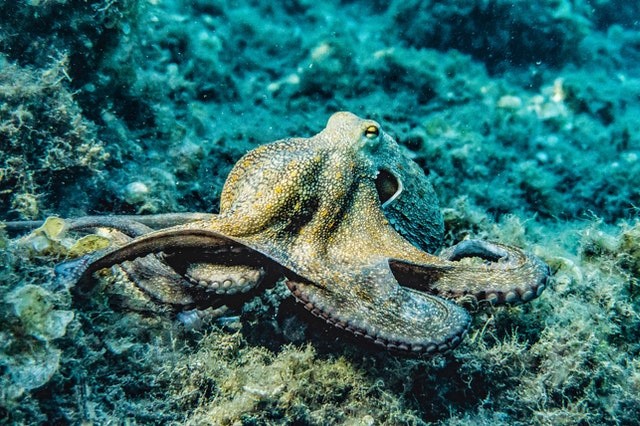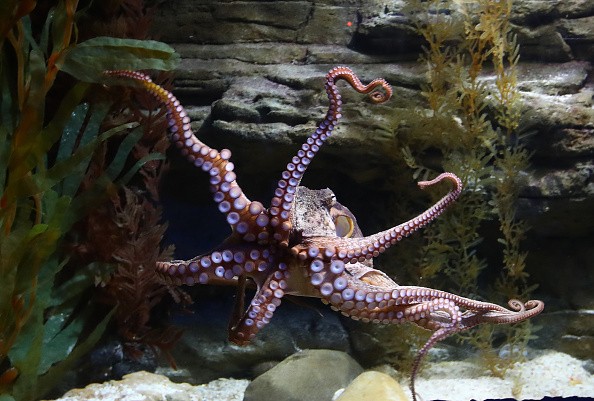Octopuses are known to sleep and they usually change color while they do so. A study released on the 25th of March 2021, in the journal iScience shows that these changes in color are features of the two important alternating sleep states which are the"quiet sleep" and "active sleep" stage.

REM and Non-REM Sleep
Scientists say that the discoveries have implications for the development of sleep and might suggest that it is achievable for octopuses to experience something similar to dreams. Researchers used to believe that only birds and mammals had two sleep states.
Lately, it was exhibited that few reptiles also display REM and non-REM sleep. A REM-like sleep state was also revealed in a cephalopod family of the octopus and cuttlefish
Senior author Sidarta Ribeiro of the Brain Institute of the Federal University of Rio Grande do Norte, Brazil said: "That made us ponder if we might find proof of two sleep states in octopuses, too. Octopuses have the most centralized nervous system of any animal without backbone and are known to have a high-level learning capability."
To find out, the scientists took video recordings of octopuses in the lab. They discovered that during 'quiet sleep' the animals were still and silent, with eye pupils, pale skin, and shrink to a slit. During 'active sleep,' the story wasn't the same.
Stimulation Tests
The animals actively changed their texture and skin color. They also change the position of their eyes while shrinking their suckers and body with muscular jerks. Sidarta said: "What makes it more fascinating is that this 'active sleep' most of the time occurs after a long "quiet sleep," generally more than 6 minutes and that it has an attribute periodicity," the cycle would occur continuously at an interval of about 30 to 40-minute.
To prove that these states truly represented sleep, the scientists weighed the octopuses' reaction threshold with the use of tactile and visual stimulation tests. The outcome of those tests appeared that in both 'quiet' and 'active' sleep states, the octopuses wanted an intense stimulus to induce a behavioral response in alikeness with the alert state. In other words, they were asleep.
Vertebrates Vs Cephalopods
The discoveries have fascinating implications for octopuses and for the development of sleep. They also raise interesting new questions.
Initial author and graduate student Sylvia Medeiros of the Brain Institute of the Federal University of Rio Grande do Norte, Brazil said that the change of sleep states noticed in the Octopus insularis looks quite alike to ours, despite the immeasurable evolutionary distance between vertebrates and cephalopods, with an early division of lineages about 500 million years ago.

Role of Sleep
The independent development in cephalopods of an 'active sleep' comparable to vertebrate REM sleep may show a materializing property usual to centralized nervous systems that gets to a certain complexity.
In studies to come, scientists would love to record data relating to nerves from cephalopods to get a better understanding of what happens when they are asleep. They're also inquisitive about the role of sleep in the thinking, learning, and metabolism of animals.
Related Article : Octopus Ancestors Among the First Animals on Earth, Dating Back to 509 Million Years Ago!
For more news, updates about octopuses and similar topics don't forget to follow Nature World News!
© 2025 NatureWorldNews.com All rights reserved. Do not reproduce without permission.





